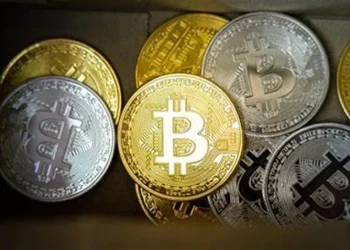Cryptocurrencies have changed how we think about money. Among them, Tron (TRX) stands out. But does Tron have a future? This article explores Tron’s technology, use cases, competition, and challenges. We will look at why some people believe in Tron and why others are skeptical. By the end, you will have a clear understanding of whether Tron is worth investing in.
What Is Tron?
Tron is a blockchain platform designed for digital entertainment. Justin Sun founded it in 2017. The goal was to create a decentralized internet where content creators could connect directly with users. Tron uses its own cryptocurrency, called TRX, for transactions.
The Tron blockchain supports smart contracts and decentralized applications (dApps). This makes it similar to Ethereum. However, Tron claims to be faster and cheaper. Many people use Tron for trading, gaming, and streaming content.
How Does Tron Work?
Tron uses a delegated proof-of-stake (DPoS) system. This means that TRX holders vote for “super representatives” who validate transactions. Because of this, Tron can process many transactions quickly. The network claims to handle up to 2,000 transactions per second.
Developers can build dApps on Tron. These apps run without a central authority. Some popular dApps on Tron include gambling and gaming platforms. Tron also supports stablecoins like USDT (Tether), making it useful for trading.
Advantages of Tron
Tron has several strengths that could help it grow in the future.
One big advantage is speed. Tron’s blockchain is faster than Bitcoin and even Ethereum in some cases. This makes it good for applications needing quick transactions.
Another benefit is low fees. Sending TRX costs almost nothing. This is important for small transactions and micro-payments.
Tron also has a strong community. Many people support the project and believe in its vision. A loyal user base can help a cryptocurrency survive tough times.
Finally, Tron has partnerships with big companies. For example, it works with Samsung and Opera. These partnerships give Tron more credibility.
Challenges Facing Tron
Despite its strengths, Tron faces serious challenges.
One problem is centralization. Critics say Tron’s DPoS system gives too much power to a few “super representatives.” This goes against the idea of decentralization.
Another issue is competition. Ethereum, Solana, and Binance Smart Chain are all strong rivals. They also support dApps and smart contracts. Tron must prove it is better than these platforms.
Regulation is another concern. Governments are cracking down on cryptocurrencies. If strict rules come, Tron could suffer.
Finally, Justin Sun, Tron’s founder, is a controversial figure. Some people question his leadership. Scandals or legal problems could hurt Tron’s reputation.
Tron’s Use Cases
Tron is not just a cryptocurrency. It has real-world uses.
One major use case is content sharing. Tron wants to replace platforms like YouTube. On Tron, creators earn TRX directly from fans. There are no middlemen taking a cut.
Gaming is another big area. Many blockchain games run on Tron. Players can earn TRX by playing. This is part of the “play-to-earn” trend.
Tron is also used for payments. Some businesses accept TRX as payment. Its low fees make it attractive for small transactions.
Finally, Tron is popular in decentralized finance (DeFi). People use it for lending, borrowing, and trading without banks.
Tron vs. Ethereum
Ethereum is Tron’s biggest competitor. Both support smart contracts and dApps. But there are key differences.
Ethereum is more decentralized. It has a larger developer community. Many big projects run on Ethereum.
However, Ethereum has high fees and slow speeds. Tron is faster and cheaper. But Ethereum is upgrading to Ethereum 2.0. If this upgrade succeeds, Ethereum could become even stronger.
Tron must keep improving to stay competitive. Otherwise, developers might choose Ethereum instead.
The Future of Tron
So, does Tron have a future? The answer depends on several factors.
If Tron can solve its centralization problems, it might gain more trust. It also needs to keep attracting developers. More dApps mean more users.
Regulation will play a big role. If governments support cryptocurrencies, Tron could grow. But if rules become too strict, Tron might struggle.
Competition is another factor. Tron must stay ahead of rivals like Ethereum and Solana. Innovation will be key.
Finally, the crypto market itself is unpredictable. Prices can rise or fall suddenly. Investors should be careful.
Tron’s Role in the Broader Crypto Ecosystem
Tron is not just another blockchain—it plays a unique role in the crypto world. While Bitcoin is seen as digital gold and Ethereum as a decentralized computer, Tron focuses on media and entertainment. This specialization gives it an edge in certain areas. Many content creators and gamers prefer Tron because of its fast transactions and low costs.
Additionally, Tron’s integration with USDT has made it a top choice for traders who want to move stablecoins quickly and cheaply. However, the crypto space is evolving rapidly. New blockchains with even better features could emerge. For Tron to stay relevant, it must continue adapting and expanding its ecosystem. If it can maintain its niche while improving decentralization and security, Tron could remain a key player in the industry for years to come.
Conclusion
Tron has both strengths and weaknesses. Its speed and low fees make it useful. But centralization and competition are big challenges. Whether Tron succeeds depends on how it handles these issues. For now, Tron remains an interesting project with potential. Investors should do their own research before getting involved. The future of Tron is uncertain, but it is definitely worth watching.
Related Topics:
Is Cryptocurrency a Liquid Asset














